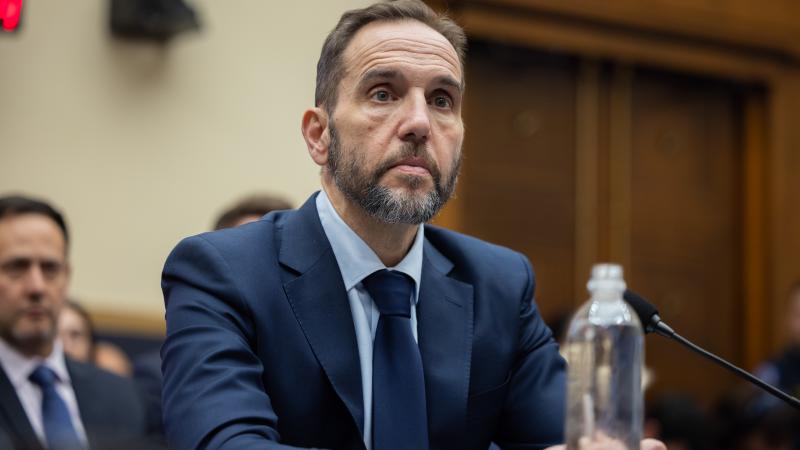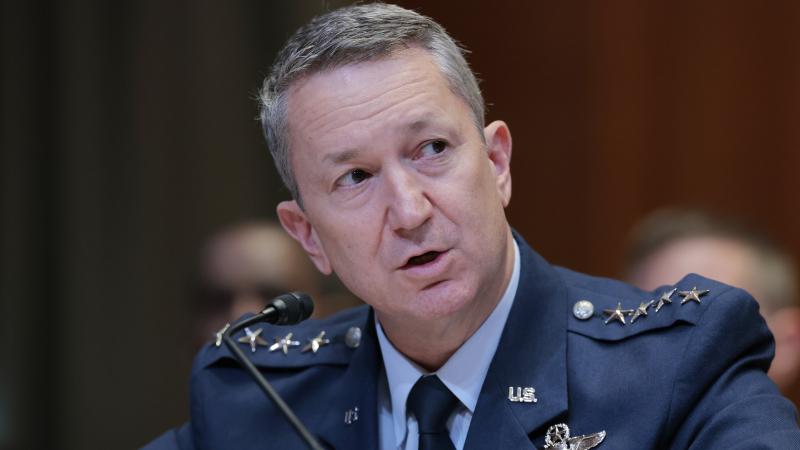Action sought from Justice Department against illegal offshore sportsbooks
28 lawmakers send letter in asking DOJ “make a concerted effort to fight illegal offshore sportsbooks.”
A bipartisan group of 28 U.S. House lawmakers has put the Department of Justice on notice that they’re concerned about illegal sports betting.
Those representatives – 15 Democrats, 13 Republicans – signed a letter sent to Attorney General Merrick Garland on Wednesday asking that the DOJ “make a concerted effort to fight illegal offshore sportsbooks.”
Since the U.S. Supreme Court overturned the Professional and Amateur Sports Protection Act in May 2018, legal sports betting has proliferated. According to the American Gaming Association, 30 states and the District of Columbia currently have operators taking bets; five more states have approved it.
That means more than 157 million U.S. residents can place legal wagers from a regulated sportsbook either now or soon. That figure does not include residents from places like Kentucky and Missouri, who can travel short distances to place bets in neighboring states.
But it’s not just the legal market that’s growing, according to the lawmakers. Searches for offshore sportsbooks grew by nearly 40% last year, faster than searches for licensed operators.
“These dangerous operators are not relegated to the dark web, but instead are easily accessed through any computer or smartphone,” the lawmakers wrote. “This creates confusion for many consumers who may not even know they are wagering illegally.”
Lawmakers pointed directly to three – Bovada, MyBookie and BetOnline – they said have platforms that look similar to regulated operators. Despite not being licensed, these sportsbooks still get promoted by “reputable sports media channels” and can offer enticing odds to bettors.
U.S. Rep. Dina Titus, D-Nev., who co-chairs the Congressional Gaming Caucus with U.S. Rep. Guy Reschenthaler, R-Pa., told The Center Square in a statement that the offshore books pose as legitimate businesses. She and Reschenthaler sent the letter to Garland.
“In reality, these illegal operations have no systems in place to protect customers, exposing users to various financial and cyber vulnerabilities, and do not provide the proper protection for users regarding sports integrity, age restrictions and problem gaming,” Titus said. “Additionally, these unregulated sources are utilized by various organizations that take advantage of a lack of vetted protocols to engage in money laundering.”
Titus added that if the DOJ went after offshore operators, it would “effectively” support licensed sportsbooks.
That, in turn, would help states that generate millions in tax revenues from sportsbook revenues.
Arizona has collected nearly $4.5 million in tax revenue through the first three months of the year. Through the first five months, Indiana has generated $13.7 million from its sports betting tax, and Pennsylvania, in the same time frame, has received $38.5 million.
New York, the largest legal sports betting market, has generated $294.2 million from its 51% tax since online wagering started nearly six months ago.
It’s not just Congress that wants the Justice Department to go after offshore sportsbooks. The letter was endorsed by Major League Baseball, the National Football League, the National Hockey League, the PGA Tour and the American Gaming Association.
“Offshore websites are a significant threat to consumer protections and the economic benefits legal gaming provides for communities across the country,” said AGA President and CEO Bill Miller. “We are grateful for the leadership of Gaming Caucus Co-Chairs Reps. Titus and Reschenthaler drawing attention to this pervasive issue, and the members who signed on to this call to action.”
In addition to Titus and Reschenthaler, other lawmakers who signed the letter are Anthony G. Brown, D-Md.; André Carson, D-Ind.; Thomas R. Suozzi, D-N.Y.; Brian Fitzpatrick, R-Pa.; C.A. Dutch Ruppersberger, D-Md.; Mark E. Amodei, R-Nev.; David J. Trone, D-Md.; John Joyce, R-Pa.; Jefferson Van Drew, R-N.J.; Susie Lee, D-Nev.; Josh Gottheimer, D-N.J.; Anthony Gonzalez, R-Ohio; Colin Z. Allred, D-Texas; Haley M. Stevens, D-Mich.; Ashley Hinson, R-Iowa; Doug LaMalfa, R-Calif.; Mary Gay Scanlon, D-Pa.; Steven Horsford, D-Nev.; Lloyd Doggett, D-Texas; Mike Kelly, R-Pa.; Fred Keller, R-Pa.; David P. Joyce, R-Ohio; Steve Chabot, R-Ohio; Grace Meng, D-N.Y.; Ben Cline, R-Va.; and Pete Aguilar, D-Calif.















